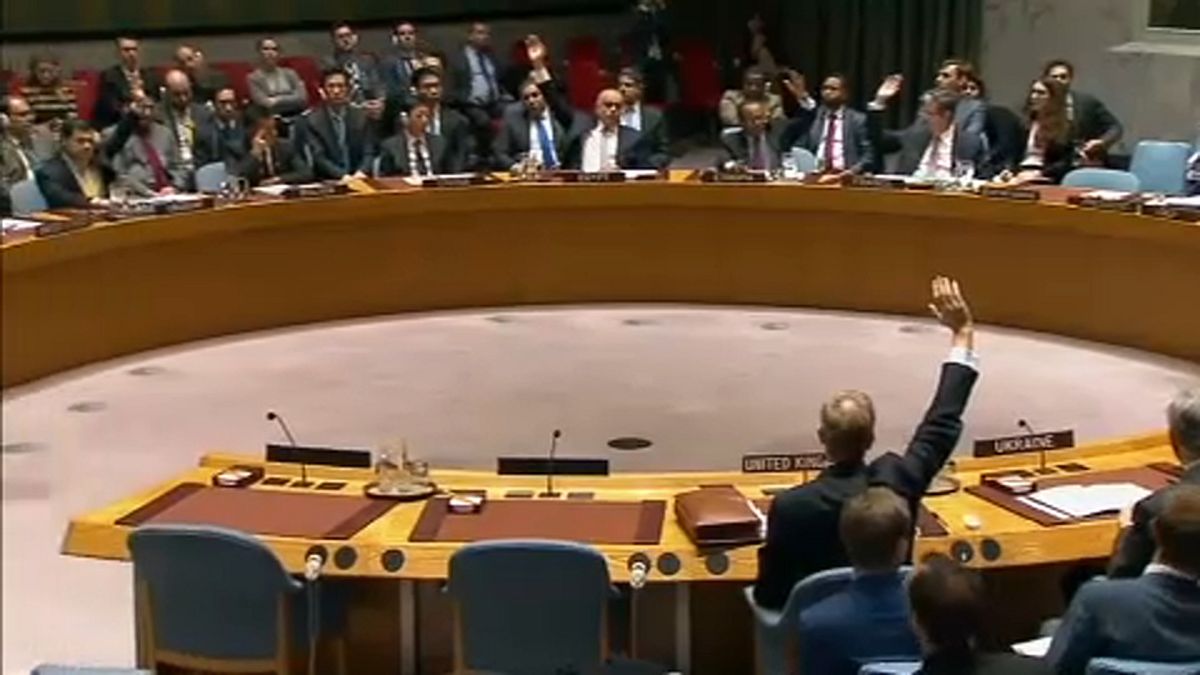It is the third time in a month that Russia has blocked attempts to extend the inquiry
Russia has blocked for the third time in a month attempts at the United Nations to extend an international inquiry into chemical weapons attacks in Syria.
A draft resolution tabled by Japan would have extended the UN-led joint investigative mechanism (JIM) for 30 days enabling time for talks on a wider compromise.
But Moscow vetoed its adoption insisting the investigation was flawed.
Speaking at the UN Security Council, US ambassador Nikki Haley branded Russia’s move to let the existing inquiry lapse as “shameful.”
“Russia’s veto, is its second in 24 hours. Russia will not agree to any mechanism that might shine a spotlight on the use of chemical weapons by its ally the Syrian regime. It’s as simple and shameful as that.”
By using the veto to kill a mechanism in Syria that holds users of chemical weapons accountable, Russia proves they cannot be trusted or credible as we work towards a political solution in Syria.
— Nikki Haley (@nikkihaley) 16 novembre 2017
Refuting the criticism, Russia’s UN Ambassador Vassily Nebenzia told the council that the inquiry could only be extended if “fundamental flaws in its work” were fixed. He said that for the past two year the investigators had “rubber-stamped baseless accusations against Syria, saying:“Don’t attempt to blame Russia now. This was your deliberate choice, when the priority was not on ensuring a quality investigation into chemical weapons crimes but rather exerting pressure on Syria and confronting Russia.”
While Russia agreed to the creation of the inquiry two years ago, it has consistently questioned its work and conclusions.
A resolution needs nine votes in favour and no vetoes by the United States, France, Russia, Britain or China to be adopted.
A report by the UN-led investigation last month, concluded that the Syrian air force dropped the deadly nerve agent Sarin on the Syrian town of Khan Sheikhoun.
The toxic gas attack in April left more than 80 people dead, many of them children.
Under a deal brokered by Russia and the United States, Syria agreed to destroy all its chemical weapons in 2013.
Syrian President Bashar al-Assad has described the events in Khan Sheikhoun as a “fabrication”.
